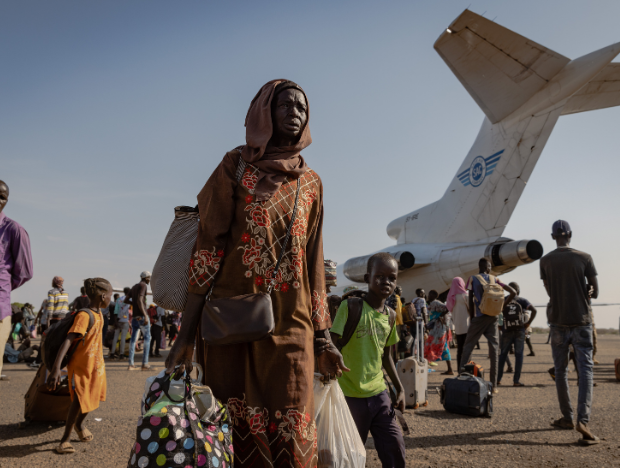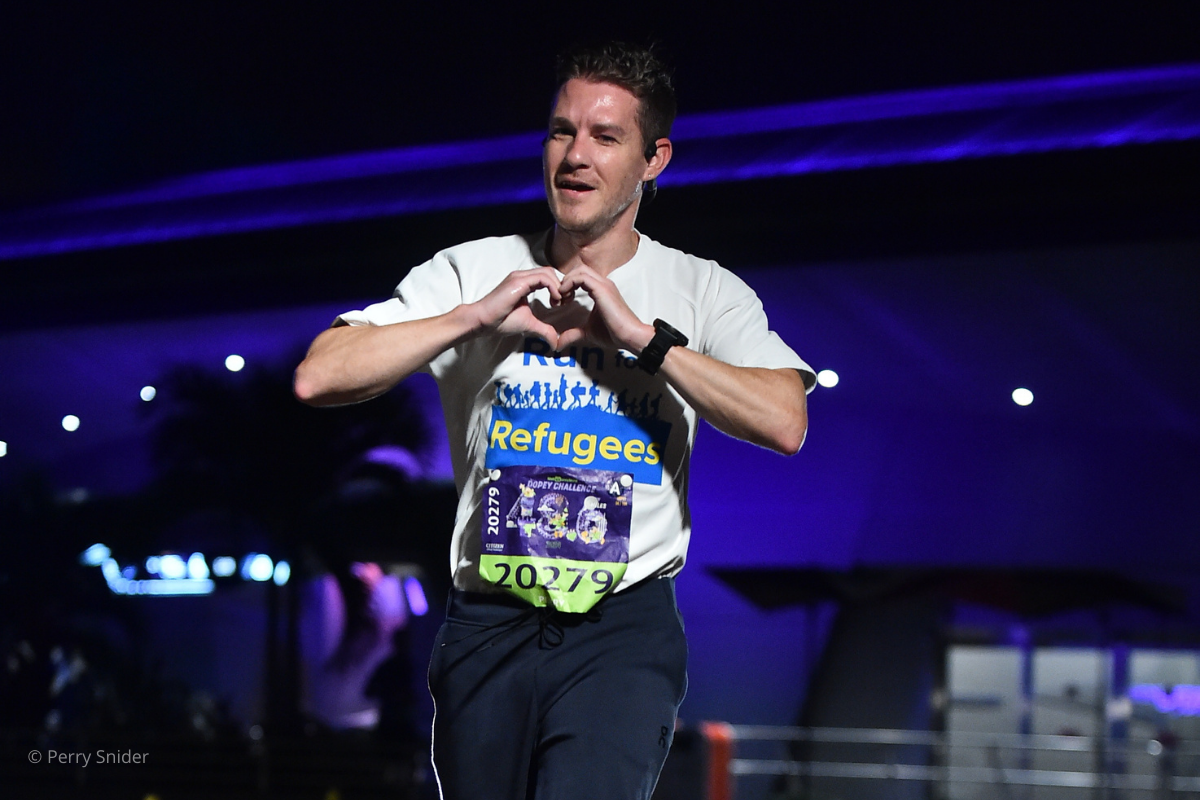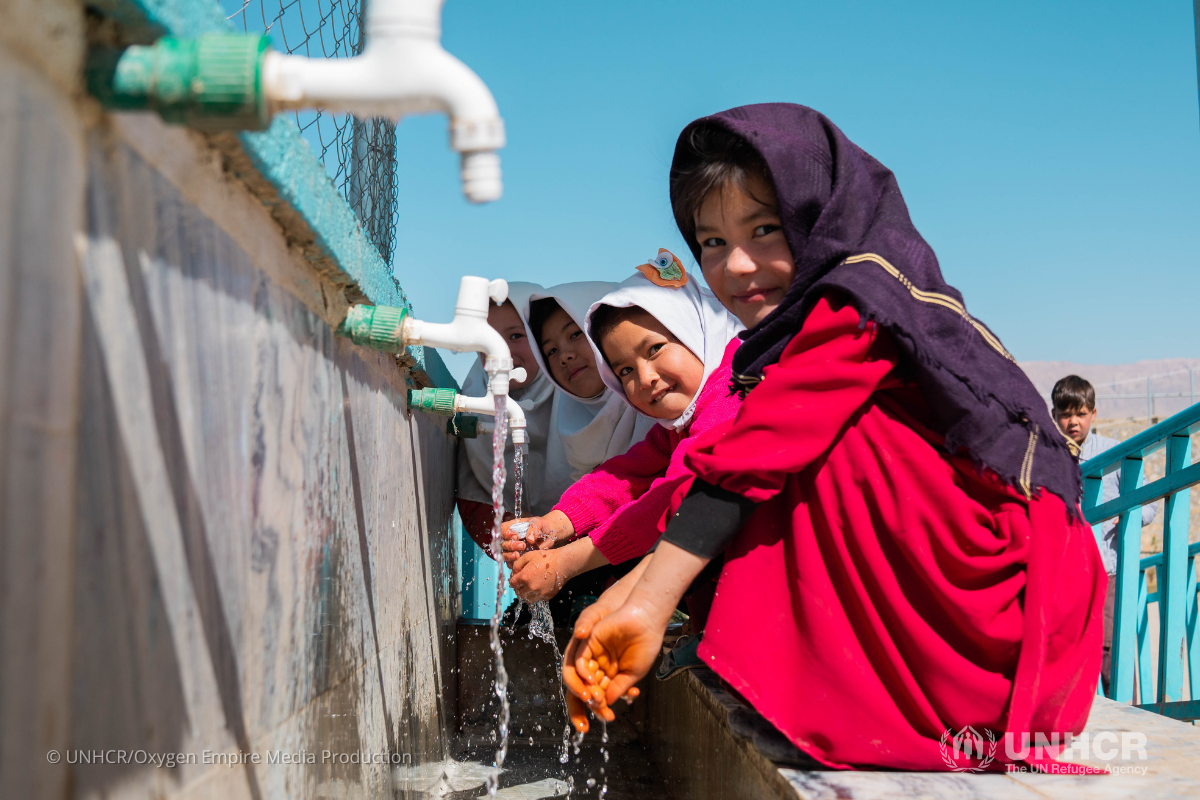Generous support from UNHCR donors provided lifesaving assistance to refugees in 2021
2021 was a year marked by escalating and new conflicts that forced millions of people globally to flee their homes due to persecution, conflict, violence and human rights violations. Despite record level displacement, our donors were steadfast in their commitment to protecting and improving the lives of tens of millions of people of concern—refugees, returnees, internally displaced people and stateless people. Through generous donor support, UNHCR was able to deliver lifesaving assistance to people in need.
“Our task is growing and becoming more complex. But we are determined to deliver, bolstered by a burgeoning global network of partners, and heartened by the great reserves of altruism, solidarity and generosity that persist in – and perhaps because of – our troubled world,” said Filippo Grandi, United Nations High Commissioner for Refugees.
Below are key takeaways from UNHCR’s 2021 Global Report, highlighting the impact made possible by donor compassion and kindness.
1. UNHCR responded to evolving and new emergencies with core relief items and cash assistance
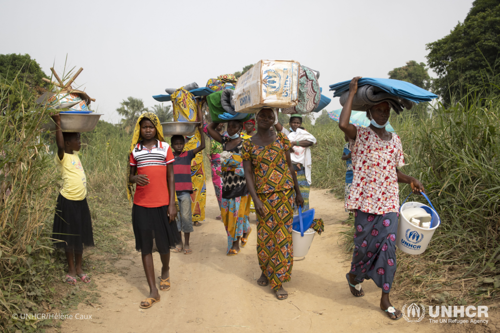
UNHCR declared 40 new emergencies in 29 countries in 2021, including two Level 3 emergencies which triggered a whole-of-UNHCR response. Despite supply chain disruptions from COVID-19, UNHCR responded to new and ongoing emergencies by dispatching $47.6 million worth of emergency core relief items (CRIs). In addition to CRIs, UNHCR disbursed much needed cash assistance amounting to $668 million to 9.3 million people in over 100 countries, including Afghanistan, the Democratic Republic of the Congo and Yemen.
Ninety-five percent of respondents from 44 countries reported that UNHCR’s cash assistance program improved their living conditions and helped reduce feelings of stress. However, the results also pointed to major gaps in meeting immediate basic needs. Seventy-three percent of households reported being able to cover only half their immediate basic needs or less. As funding allows, UNHCR will continue to grow the cash assistance program to ensure refugees are empowered to choose how they meet their basic needs.
2. UNHCR mitigated the adverse impacts of climate change and environmental degradation on people of concern
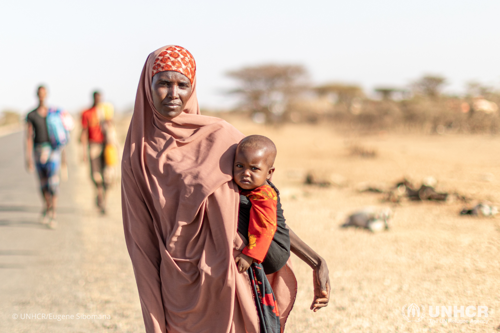
Ninety percent of refugees come from countries on the frontlines of the climate emergency. In 2021, floods impacted South Sudan and Rohingya refugees in Bangladesh, Afghanistan and Somalia suffered devastating droughts and dwindling water resources sparked conflict in Cameroon.
UNHCR aimed to mitigate the adverse impacts of climate change and environmental degradation on people of concern. UNHCR evacuated Sudanese refugees from shelters damaged by heavy rains and flooding, supplied renewable electricity to hospitals in Kenya, reforested around Rohingya refugee camps and solarized water systems in 20 countries to provide over 800,000 refugees with more water for longer periods. UNHCR also aims to reduce its own environmental footprint and greenhouse gas emissions by at least 45 percent by 2030.
3. Despite challenges from COVID-19, UNHCR operations continued to strengthen child protection systems
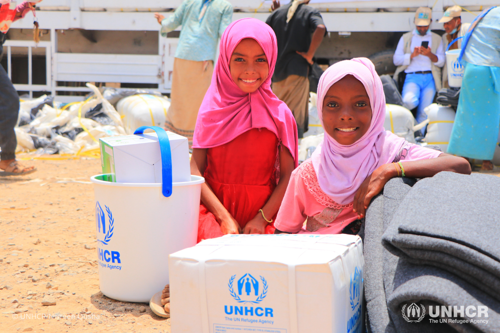
In 2021, 56 percent of UNHCR’s operations cited COVID-19 as a key challenge to child protection, engagement and empowerment. COVID-19 dramatically impacted education and youth opportunities while increasing poverty, isolation and violence against children. Children were also particularly vulnerable in situations of crisis and displacement—82 percent of UNHCR operations reporting on child protection issues in 2021 said there was a lack of adequate care for unaccompanied and separated children with many at risk of abuse, separation from their parents, neglect, violence, exploitation, trafficking or military recruitment.
Despite these challenges, 92 percent of UNHCR operations strengthened national child protection systems and child-friendly procedures. Sixty-four percent of operations engaged in activities to build children’s resilience and life skills through education, sport, art or other structured activities, while 58 percent undertook community engagement programs such as behavior change initiatives or child friendly spaces. In 2021,1.9 million children were enrolled in primary education with 183,000 students enrolled in lower and upper secondary education.
4. UNHCR provided support to survivors of gender-based violence and practiced risk mitigation across sectors
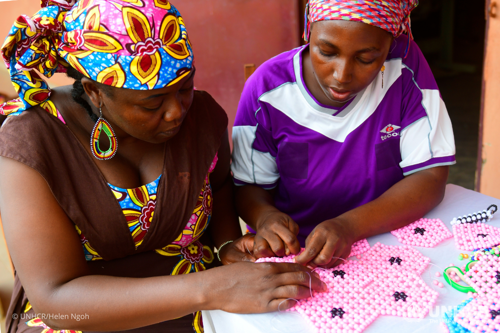
Gender-based violence in conflict zones is often a major factor driving people to flee their homes. In 2021, women and girls who were already facing deep-rooted inequalities were disproportionately affected in conflict settings in locations like the Democratic Republic of the Congo, Ethiopia, Mozambique and northern Central America. Estimates suggest that 1 in 5 forcibly displaced women is subjected to sexual violence, and displacement may bring a 20 percent higher risk of intimate partner violence.
The pandemic put women and girls at greater risk and hampered the delivery of and access to gender-based violence services. Despite these challenges, 74 percent of UNHCR operations reported that gender-based violence services were available to survivors. Survivors were supported with psychosocial, health, security and legal services as well as cash assistance.
5. UNHCR and WFP worked together in several countries to support refugee food security
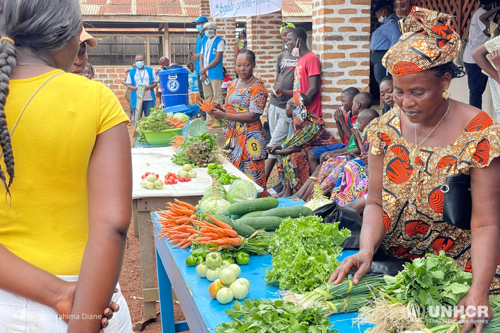
Food security is a growing concern due to the combined impacts of reduced humanitarian funding, climate change, the economic impact of COVID-19 and limited legal access to employment opportunities. In 2021, funding shortfalls forced cuts to refugee food and basic needs assistance in 15 countries. Alarmingly, 33 percent of sites surveyed had a serious global acute malnutrition prevalence.
UNHCR supported the management of acute malnutrition, prevention of undernutrition and micronutrient deficiencies and explored context-specific interventions to improve food security and the nutrition status of refugees. Support for the management of acute malnutrition reached 71,695 children aged 6-59 months with severe acute malnutrition and 164,509 children with moderate acute malnutrition. UNHCR worked closely with the World Food Programme (WFP) to distribute $1.8 billion in humanitarian assistance to over 11 million refugees in the form of food and basic needs.
6. Millions of people accessed UNHCR protection services related to COVID-19, including vaccines
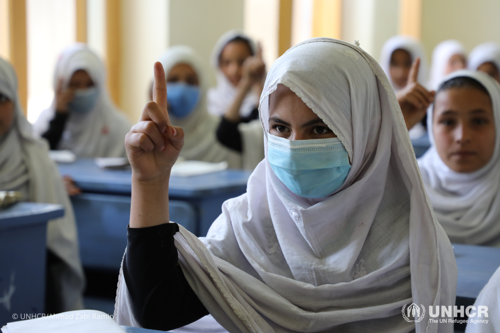
In 2021, the COVID-19 pandemic evolved into a more regular emergency after the initial shock of travel bans and lockdowns. UNHCR strove to ensure forcibly displaced and stateless people, who are disproportionately disadvantaged by COVID-19, were not left behind. UNHCR emphasized including people of concern in national vaccination and recovery plans and mitigating the most acute needs with cash assistance.
Over the course of the year, 19.7 million people in 148 countries accessed UNHCR protection services in the context of COVID-19. As COVID-19-related border closures and entry restrictions were eased in many countries, UNHCR advocated for the inclusion of refugees in national vaccination plans, resulting in at least 162 countries including refugees in their plans. By the end of 2021, 4.79 million vaccine doses had been distributed to over 3.25 million forcibly displaced people in 66 countries. UNHCR delivered almost $670 million in cash assistance to 9.3 million people in nearly 100 countries.
How to Help…
Global forced displacement is reaching record levels because of war, violence and persecution and new emergencies are adding to this figure everyday. Your compassionate support helps provide emergency supplies, lifesaving care and protection to families who have fled for their lives. By becoming USA for UNHCR’s newest monthly donor, you can support refugees and IDPs in their ongoing journey to find safety and hope.
